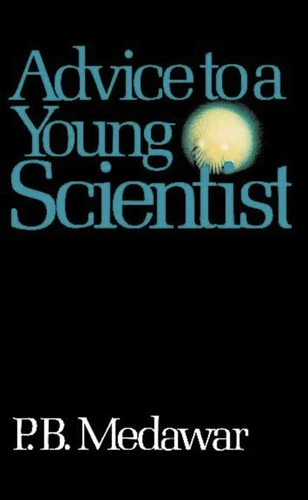Advice To A Young Scientist
Par :Formats :
Disponible dans votre compte client Decitre ou Furet du Nord dès validation de votre commande. Le format ePub protégé est :
- Compatible avec une lecture sur My Vivlio (smartphone, tablette, ordinateur)
- Compatible avec une lecture sur liseuses Vivlio
- Pour les liseuses autres que Vivlio, vous devez utiliser le logiciel Adobe Digital Edition. Non compatible avec la lecture sur les liseuses Kindle, Remarkable et Sony
- Non compatible avec un achat hors France métropolitaine
 , qui est-ce ?
, qui est-ce ?Notre partenaire de plateforme de lecture numérique où vous retrouverez l'ensemble de vos ebooks gratuitement
Pour en savoir plus sur nos ebooks, consultez notre aide en ligne ici
- Nombre de pages416
- FormatePub
- ISBN978-0-7867-2262-4
- EAN9780786722624
- Date de parution31/07/2008
- Protection num.Adobe DRM
- Infos supplémentairesepub
- ÉditeurBasic Books
Résumé
To those interested in a life in science, Sir Peter Medawar, Nobel laureate, deflates the myths of invincibility, superiority, and genius; instead, he demonstrates it is common sense and an inquiring mind that are essential to the scientist's calling. He deflates the myths surrounding scientists -- invincibility, superiority, and genius; instead, he argues that it is common sense and an inquiring mind that are essential to the makeup of a scientist.
He delivers many wry observations on how to choose a research topic, how to get along wih collaborators and older scientists and administrators, how (and how not) to present a scientific paper, and how to cope with culturally "superior" specialists in the arts and humanities.
He delivers many wry observations on how to choose a research topic, how to get along wih collaborators and older scientists and administrators, how (and how not) to present a scientific paper, and how to cope with culturally "superior" specialists in the arts and humanities.
To those interested in a life in science, Sir Peter Medawar, Nobel laureate, deflates the myths of invincibility, superiority, and genius; instead, he demonstrates it is common sense and an inquiring mind that are essential to the scientist's calling. He deflates the myths surrounding scientists -- invincibility, superiority, and genius; instead, he argues that it is common sense and an inquiring mind that are essential to the makeup of a scientist.
He delivers many wry observations on how to choose a research topic, how to get along wih collaborators and older scientists and administrators, how (and how not) to present a scientific paper, and how to cope with culturally "superior" specialists in the arts and humanities.
He delivers many wry observations on how to choose a research topic, how to get along wih collaborators and older scientists and administrators, how (and how not) to present a scientific paper, and how to cope with culturally "superior" specialists in the arts and humanities.



